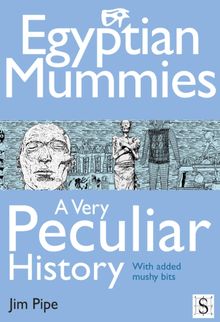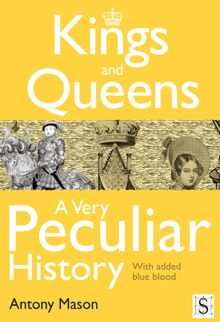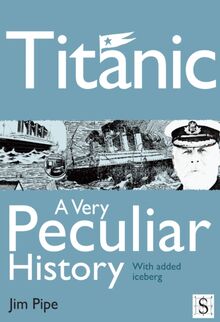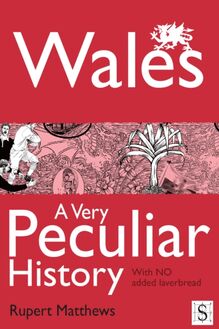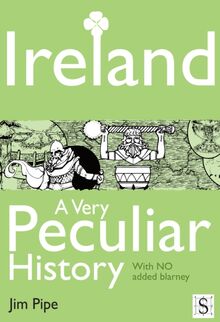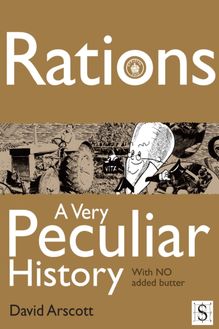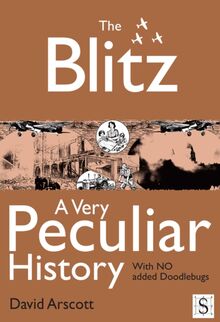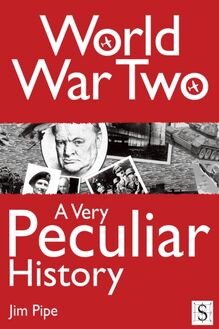-
 Univers
Univers
-
 Ebooks
Ebooks
-
 Livres audio
Livres audio
-
 Presse
Presse
-
 Podcasts
Podcasts
-
 BD
BD
-
 Documents
Documents
-
- Cours
- Révisions
- Ressources pédagogiques
- Sciences de l’éducation
- Manuels scolaires
- Langues
- Travaux de classe
- Annales de BEP
- Etudes supérieures
- Maternelle et primaire
- Fiches de lecture
- Orientation scolaire
- Méthodologie
- Corrigés de devoir
- Annales d’examens et concours
- Annales du bac
- Annales du brevet
- Rapports de stage
La lecture à portée de main
Vous pourrez modifier la taille du texte de cet ouvrage
Découvre YouScribe en t'inscrivant gratuitement
Je m'inscrisDécouvre YouScribe en t'inscrivant gratuitement
Je m'inscrisEn savoir plus
Vous pourrez modifier la taille du texte de cet ouvrage
En savoir plus

Description
Sujets
Informations
| Publié par | Andrews UK |
| Date de parution | 16 février 2012 |
| Nombre de lectures | 0 |
| EAN13 | 9781908759481 |
| Langue | English |
Informations légales : prix de location à la page 0,0300€. Cette information est donnée uniquement à titre indicatif conformément à la législation en vigueur.
Extrait
Title Page
THE WORLD CUP, A VERY PECULIAR HISTORY
With NO added time
Written by
David Arscott
Created and designed by David Salariya
Publisher Information
First published in Great Britain in MMXII by Book House, an imprint of
The Salariya Book Company Ltd
25 Marlborough Place, Brighton BN1 1UB
www.salariya.com
www.book-house.co.uk
Digital edition converted and distributed in 2012 by
Andrews UK Limited
www.andrewsuk.com
Editor: Jamie Pitman
Assistant editor: Jodie Leyman
© The Salariya Book Company Ltd MMXII
All rights reserved. No part of this publication may be reproduced, stored in or introduced into a retrieval system or transmitted in any form, or by any means (electronic, mechanical, photocopying, recording or otherwise) without the written permission of the publisher. Any person who does any unauthorised act in relation to this publication may be liable to criminal prosecution and civil claims for damages.
Every effort has been made to trace copyright holders. The Salariya Book Company apologises for any omissions and would be pleased, in such cases, to add an acknowledgement in future editions.
Visit our website at
www.book-house.co.uk
or go to
www.salariya.com
for free electronic versions of:
You Wouldn’t Want to be an Egyptian Mummy!
You Wouldn’t Want to be a Roman Gladiator!
You Wouldnt Want to Join Shackleton’s Polar Expedition!
You Wouldn’t Want to Sail on a 19th-Century Whaling Ship!
Dedication
For my son, Jack – a fellow Spurs and Lewes FC supporter
DA
Introduction: How it all kicked off
As this book is being written by an Englishman it naturally begins with the fact that it was our fellow countrymen who gave this best of all possible sports to the world, with the Football Association being founded as early as 1863.
Unfortunately it must then promptly admit what readers of other nationalities won’t be slow to point out – that it wasn’t very long before the rest of the world not only caught up with us, but was controlling, dribbling and passing the ball rather better than we were.
It’s particularly galling to acknowledge that the story of the World Cup itself begins not with the English but with their traditional enemy across the water.
Yes, it was the French who in 1904 were chiefly responsible for founding FIFA, or the Fédération Internationale de Association Football. (The name’s a bit of a give-away, isn’t it?)
By now the game was catching on all over the globe, and the French idea was to get the British to share their expertise with other countries so that they could form a world governing body for the sport. Sad to say, the Brits weren’t interested!
The awkward squad
First of all, in May 1902, the secretary of the Dutch football association wrote to the FA in London, and it took two months for him to get a non-committal reply. Then the FA suggested the idea be put on hold until their next meeting – in June 1903. What was the hurry?
It was the dogged young French journalist Robert Guérin who got things going. His first idea was for a football federation of European nations, and he twice visited London in the hope of persuading the FA to play ball.
He bent the ear of the FA secretary Frederick Wall and its president Lord Kinnaird, but he received the snooty response that they ‘couldn’t see the advantage’ of his proposal. A writer for Le Matin, he had an apt phrase to sum up his dealings with the arrogant English. His talks, he said, had been ‘like slicing water with a knife’.
FIFA presidents
1.Robert Guérin (France) 1904–1906
2.Daniel Burley Woolfall (England) 1906–1918
3.Jules Rimet (France) 1921–1954
4.Rodolphe Seeldrayers (Belgium) 1954–1955
5.Arthur Drewry (England) 1955–1961
6.Stanley Rous (England) 1961–1974
7.João Havelange (Brazil) 1974–1998
8.Sepp Blatter (Switzerland)1998–present
In the end Guérin decided to go it alone. He called a meeting in Paris, and FIFA was established by representatives from France, Belgium, Denmark, Holland, Spain, Sweden and Switzerland. Germany were on stand-by.
With the 28-year-old Guérin installed as its first president, FIFA immediately drew up a list of rules, one of which firmly put the English in their place: ‘The International Federation is the only organisation with the right to organise an international competition.’
From this moment on, FIFA would rule the world game.
Olympic muscle
Football was at last recognised as an Olympic sport in 1908. England won both that first tournament (in London) and the following one (in Stockholm) in 1912, but power was shifting: the FA had run the London event, but it was FIFA who took over in Stockholm.
The English did soon join FIFA, and were to provide three of its presidents, but they developed a habit of pulling out of it for one reason or another – for years on end.
Certainly the French influence on early world football was far more substantial:
•Robert Guérin was FIFA’s first president.
•Jules Rimet, the longest serving FIFA president, launched the World Cup .
•Abel Lafleur sculpted the first trophy.
•France played in the first World Cup match.
An ill-fated cup
The first World Cup trophy was sculpted by Abel Lafleur in gold-plated sterling silver and lapis lazuli. Later named after FIFA president Jules Rimet, it was in the form of an octagonal cup held by Nike, the Greek goddess of victory. Unfortunately it suffered several indignities:
When the Second World War broke out in 1939 it was in the possession of Dr Ottorino Barassis, the Italian vice-president of FIFA, because Italy were then the holders. He hid it in a shoebox under his bed throughout the war.
In 1966 it was stolen while on display at an exhibition in London ahead of the World Cup final there. It was eventually discovered under a hedge in south-east London by a mongrel dog called Pickles.
Brazil won the trophy outright in 1970 by becoming champions for the third time. In 1983 it was stolen again – from the headquarters of the Brazilian Football Association – and it hasn’t been seen since.
Its successor is a solid gold trophy simply called the World Cup. It’s lent to the winners for four years, but remains the property of FIFA.
Whistle in the windpipe
Another Frenchman who played a leading role in the development of international football was Henri Delaunay.
He sat on the first FIFA board, was a prime mover in instigating the World Cup and as early as the 1920s was promoting the idea of a European Champions Cup.
Delaunay had become a referee after his playing career was over, but he retired following a nasty accident. When the ball struck him full in the face two of his teeth were broken and he swallowed his whistle.
1914–1918
If, as legend has it, English and German soldiers played a scratch game of football together during the famous 1914 Christmas truce in no-man’s land between the trenches, this was the only ‘international match’ for many years.
Once the carnage of the First World War was over, England and its allies resigned from FIFA because they felt obliged to draw up a long ‘no-go area’ of banned opponents – not only those with whom they’d been at war but any other nation which had agreed to share a pitch with their former enemies.
Shamateurism
The Olympic games eventually got going again in 1924, with FIFA running the football tournament. England had just rejoined the organisation, but along with the other British football associations and Denmark it declined to take part in the contest (in Paris) because it wasn’t happy about what the organisers meant by the word ‘amateur’. This is when the lovely word ‘shamateurism’, (‘sham amateurism’) was born. Nobody was supposed to be paid for taking part in the Olympics, but wasn’t it reasonable for the athletes to be paid out-of-pocket expenses?
Not as far as the British were concerned. They were horrified when, ahead of the 1928 Amsterdam Olympics, FIFA decided that amateurs should be allowed ‘broken time’ payments to compensate for their loss of earnings and to cover other costs.
And who would decide how much to pay them? Ah, that would be a matter for the individual football associations – so perhaps it wasn’t surprising that the British should smell a rat. The system was wide open to abuse.
Goodbye – again!
What did they do about it? Well, of course they resigned from FIFA again, and this time they wouldn’t return to the fold until after the Second World War was over, in 1946.
Mind you, FIFA and the FA continued to talk to one another. William Pickford, a committee member of both, put the FA’s case very simply: ‘We have nothing against FIFA, but our people here prefer to manage their own affairs in their own way, and not be entangled in too many regulations.’ Plus ça change!
Pity the poor ref!
William Pickford was one of football’s pioneers who helped devise its early rules. Chairman and president of the English FA from 1937 to 1938, he wrote thousands of newspaper articles about the game, and in 1906 he published a book called How to Referee .
It wasn’t aimed only at the refs, though. He said he hoped it would ‘instil a better grasp of essential points in the minds of a class singularly ill-informed upon them – the players.’
Here are a few of his essential tips for referees:
•Don’t forget that players are not machines, but are human and possess a keen sense of injustice.
•D
-
 Univers
Univers
-
 Ebooks
Ebooks
-
 Livres audio
Livres audio
-
 Presse
Presse
-
 Podcasts
Podcasts
-
 BD
BD
-
 Documents
Documents
-
Jeunesse
-
Littérature
-
Ressources professionnelles
-
Santé et bien-être
-
Savoirs
-
Education
-
Loisirs et hobbies
-
Art, musique et cinéma
-
Actualité et débat de société
-
Jeunesse
-
Littérature
-
Ressources professionnelles
-
Santé et bien-être
-
Savoirs
-
Education
-
Loisirs et hobbies
-
Art, musique et cinéma
-
Actualité et débat de société
-
Actualités
-
Lifestyle
-
Presse jeunesse
-
Presse professionnelle
-
Pratique
-
Presse sportive
-
Presse internationale
-
Culture & Médias
-
Action et Aventures
-
Science-fiction et Fantasy
-
Société
-
Jeunesse
-
Littérature
-
Ressources professionnelles
-
Santé et bien-être
-
Savoirs
-
Education
-
Loisirs et hobbies
-
Art, musique et cinéma
-
Actualité et débat de société
- Cours
- Révisions
- Ressources pédagogiques
- Sciences de l’éducation
- Manuels scolaires
- Langues
- Travaux de classe
- Annales de BEP
- Etudes supérieures
- Maternelle et primaire
- Fiches de lecture
- Orientation scolaire
- Méthodologie
- Corrigés de devoir
- Annales d’examens et concours
- Annales du bac
- Annales du brevet
- Rapports de stage
